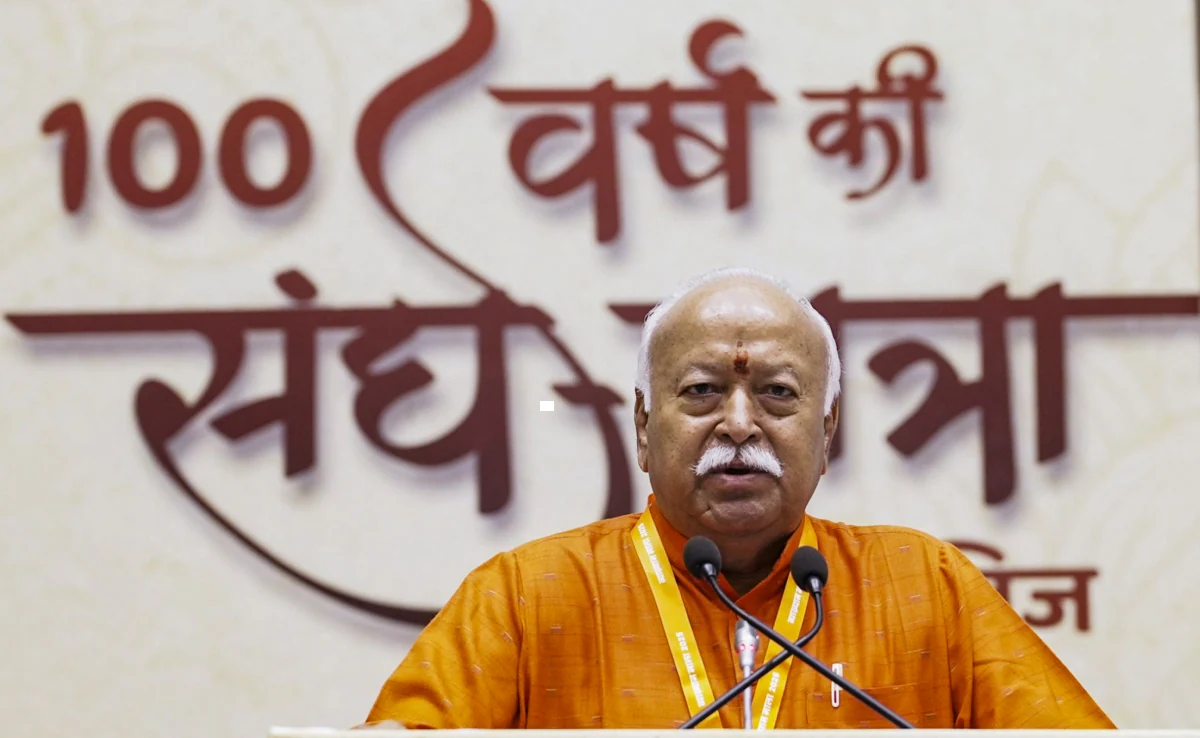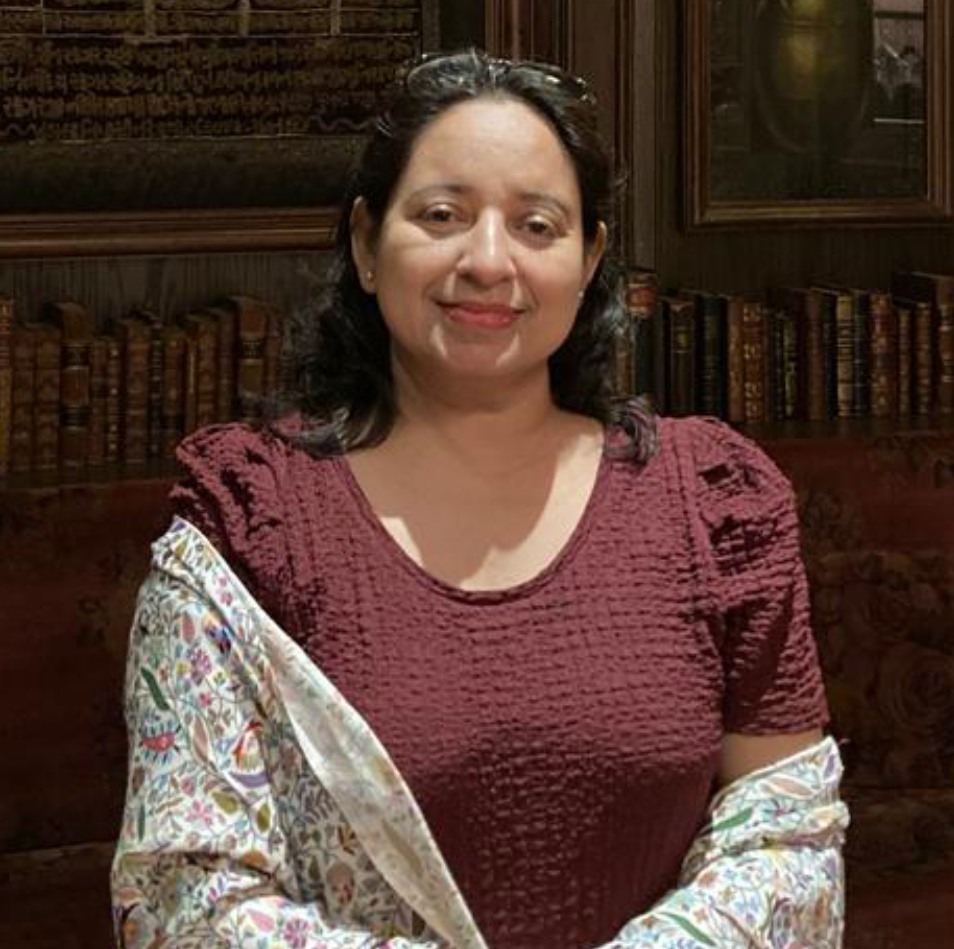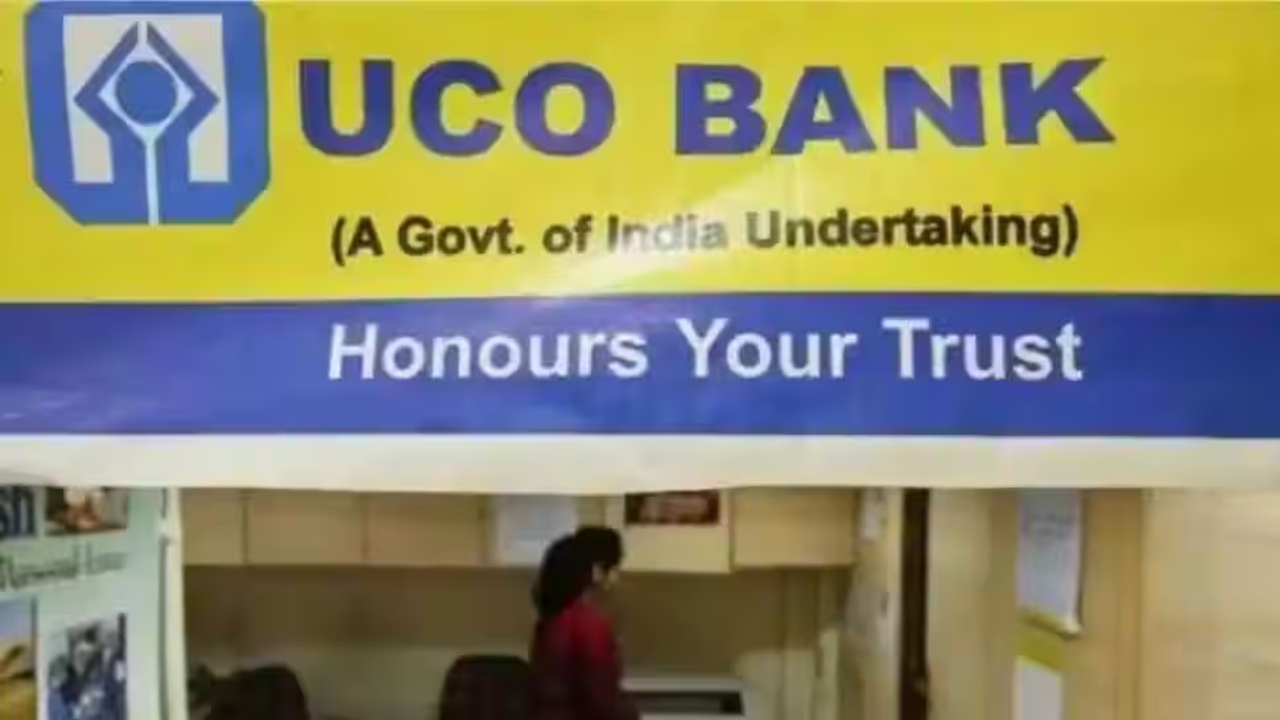

By Prabha Gupta, August 28,2025
New Delhi – The Rashtriya Swayamsevak Sangh (RSS) celebrated a historic milestone this week,100 years since its founding. On this occasion, RSS Chief Mohan Bhagwat delivered a strong message centered on self-reliance, social responsibility, and global engagement on India’s terms.
The three-day centenary event, held in Delhi, brought together volunteers, scholars, and international delegates. Bhagwat’s speech, delivered on the first day, was translated live into English, French, and Spanish. His message was clear: the future of India lies in national unity and responsible global engagement—not in isolation.
A Century of RSS: Historical Roots
Founded in 1925 by Dr. Keshav Baliram Hedgewar in Nagpur, the RSS began as a volunteer-based cultural organization aimed at strengthening the Hindu identity in colonial India. Its early mission was to instill discipline, character, and patriotic values among young Indians. Hedgewar, a freedom fighter, envisioned the RSS as a response to the fragmentation of Hindu society under British rule.
In the decades following independence, the RSS expanded rapidly. It inspired the creation of several affiliate organizations, collectively known as the Sangh Parivar, including the Bharatiya Janata Party (BJP). Despite controversies and bans during certain political periods, the RSS has remained one of the most influential socio-cultural movements in modern India.
During the centenary lecture, Bhagwat underlined the continued importance of the swayamsevaks—RSS volunteers—in shaping India’s future. He emphasized that India’s strength lies in its cultural values and civic engagement.
On the second day, the RSS chief focused on the Swadeshi movement. He clarified that self-reliance does not mean isolation. “We must engage globally by choice, not under pressure,” Bhagwat said. His comments echoed Mahatma Gandhi’s idea of Swadeshi: fostering local industry while maintaining global cooperation.
A Word of Caution on Cancel Culture
Bhagwat also expressed concern over the increasing intolerance in global discourse. He pointed to the rise of cancel culture, where opposing views are dismissed or silenced. “Fanaticism is growing worldwide. People are afraid to speak freely,” he warned.
This statement struck a chord with many attendees, especially given the polarization seen across global media and politics. He urged citizens to remain open to dialogue and dissent.
On the final day, Bhagwat fielded questions from attendees on a range of social issues. This interaction reflected a more accessible and transparent approach from the RSS leadership, aimed at encouraging public participation and feedback.
The centenary celebrations weren’t just about marking 100 years—they were about defining the next 100. With its focus on self-reliance, nationalism, and cultural pride, the RSS continues to play a significant role in shaping India’s social and political landscape.
Whether one agrees with its ideology or not, the organization’s reach and influence are undeniable—and its vision for India’s future remains a subject of national conversation.
Bhagwat on 75 year age limit.
Addressing a press conference to mark 100 years of RSS, he claimed that he never said that he would retire or someone else should retire. He said that the volunteers of the Sangh do whatever the Sangh tells them to, irrespective of their age.
On BJP-RSS Equation
In a candid reflection on the Sangh’s relationship with the ruling Bharatiya Janata Party (BJP), RSS chief Mohan Bhagwat denied any rift. Speaking during the centenary event, he clarified that while there may be differences, there is no quarrelbetween the two.
“No quarrel anywhere,” Bhagwat said. “But being on the same page on all issues is not always possible. We trust each other.” He explained that the RSS and BJP have distinct roles. “I’m an expert in running shakhas. The BJP knows how to run a government,” he said. “We can only give suggestions to each other.”
Bhagwat emphasized the value of autonomy. Even if someone in government is completely aligned with the RSS, they must be allowed space. “If the man in the chair is 100% with us, he still knows what the hurdles are,” he said. “We have to give him that independence.”

A seasoned journalist with over 30 years of rich and diverse experience in print and electronic media, Prabha’s professional stints include working with Sahara English Magazine, Pioneer and JAIN TV and All India Radio. She has also been writing in Pioneer. She has also produced several documentary films through her self-owned production house Gajpati Communications. She is also the Station Director of Aligarh-based FM Radio Station, and the General Secretary of WADA NGO.






